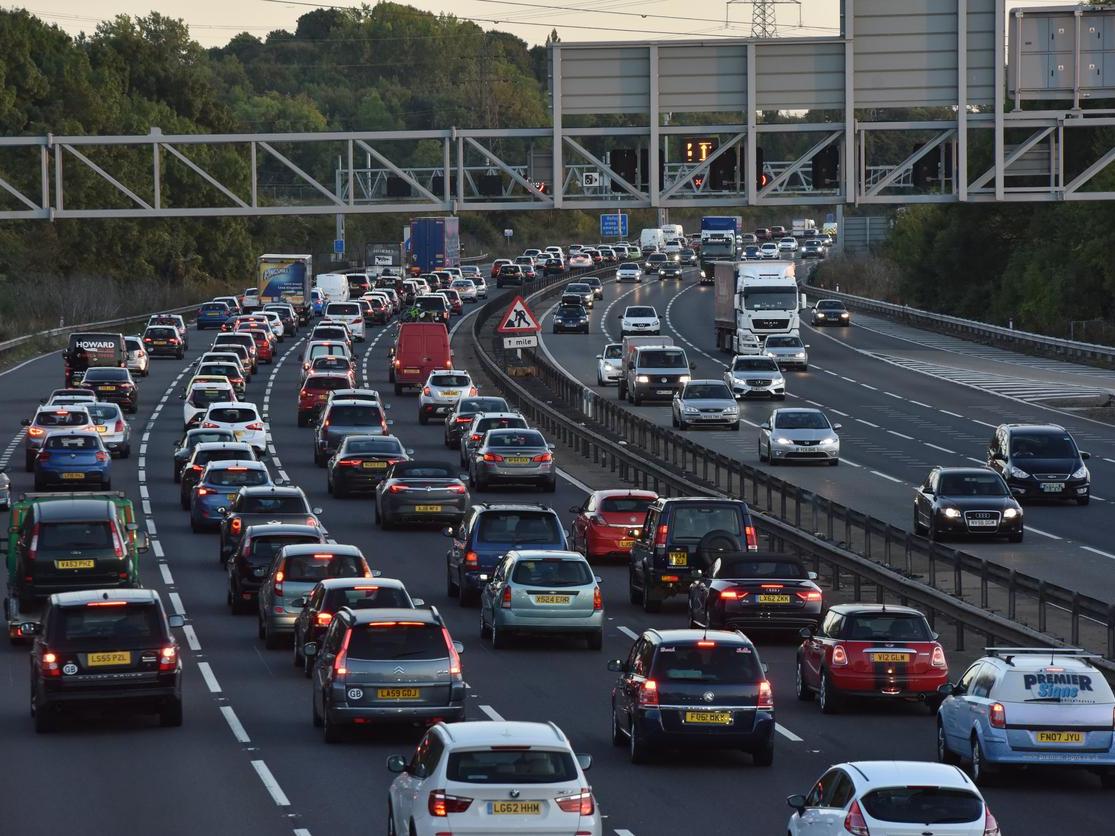UK’s worst traffic blackspots over Easter holidays identified as 25 million cars take to roads
Congestion expected to peak on Good Friday as 4.4m cars hit roads

Your support helps us to tell the story
From reproductive rights to climate change to Big Tech, The Independent is on the ground when the story is developing. Whether it's investigating the financials of Elon Musk's pro-Trump PAC or producing our latest documentary, 'The A Word', which shines a light on the American women fighting for reproductive rights, we know how important it is to parse out the facts from the messaging.
At such a critical moment in US history, we need reporters on the ground. Your donation allows us to keep sending journalists to speak to both sides of the story.
The Independent is trusted by Americans across the entire political spectrum. And unlike many other quality news outlets, we choose not to lock Americans out of our reporting and analysis with paywalls. We believe quality journalism should be available to everyone, paid for by those who can afford it.
Your support makes all the difference.Drivers have been warned they face severe queues next week with more than 25 million cars expected to clog the UK roads for the Easter getaway.
Good Friday will be the busiest day with 4.4 million journeys expected, causing major routes to be jam-packed between 11am and 4.30pm, according to RAC research.
The stretches of road likely to see the worst delays include:
- M62 westbound from Leeds to Manchester between junctions 27 and 18 (56-minute delay)
- M6 northbound from Preston to Lancaster between junctions 31 and 34 (39-minute delay)
- M25 anticlockwise from Orpington between junctions 4 and 30 (30-minute delay)
Highways England said it will remove more than 450 miles of roadworks in time for the Easter bank holiday, meaning 99 per cent of motorways and major A-roads in England will be clear of cones.
RAC spokesperson Rod Dennis said: “This week we’re expecting a significant second wave of Easter getaway traffic, following that which we saw at the start of April when schools broke up.
“This will mean the coming week and the bank holiday will likely be characterised by lengthy queues in some spots.
“Traffic jams are frustrating at the best of times and while we can predict where some of these will crop up, it only takes a single bump or breakdown for huge tailbacks to form.”
Mr Dennis urged motorists to carry out essential maintenance checks before embarking on journeys, such as tyre pressure and oil level.
Dan Croft, incident group operations manager at traffic data firm Inrix, said: “During peak hours over Easter, journeys could take UK drivers three times longer than usual.
“We are predicting Good Friday will be the worst for traffic from late morning into the afternoon.
“For drivers looking to avoid the worst congestion, the best options are to travel on Saturday, set off early in the morning and keep updated with real-time traffic data.”
Rail passengers also face disruption over the bank holiday weekend as Network Rail carries out engineering work.
London Euston – the fifth busiest station in the UK – will be closed between Good Friday and Easter Monday, affecting West Coast services.
This is due to preparation work for HS2 and creating space in the concourse.
There will also be no trains at London Fenchurch Street, an amended service between Preston and Glasgow Central, and some lines through Wimbledon in southwest London will be closed.
Martin Frobisher, route managing director for Network Rail’s London northwestern route, said: “We recognise there is never an ideal time to shut the railway for our must-do work.
“Bank holidays are the least disruptive time to do it, when fewer passengers use the railway compared to the working week. That way we can do the maximum amount of work while impacting the fewest number of people.”
Press Association
Join our commenting forum
Join thought-provoking conversations, follow other Independent readers and see their replies
Comments